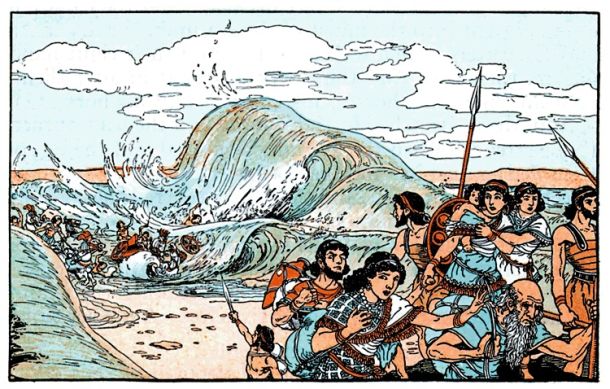History’s Lessons—Sometimes Learned
Written by Paul Suckling
A rabbi who was a child survivor of the Holocaust traveled to southern Sudan to talk about freedom from slavery—anciently and today. What lessons can Christians learn from these historic events?
The renowned American historians Will and Ariel Durant asked in the introduction to their 1968 book The Lessons of History: “Is it possible that, after all, ‘history has no sense,’ that it teaches us nothing, and that the immense past was only the weary rehearsal of the mistakes that the future is destined to make on a larger stage and scale?”
Thought-provoking words, for sure. We can see so much truth in them as we look back on enormous tragedy and man-made suffering, often repeated.
An example
Rabbi Joseph Polak had a truly interesting trip to Africa recently. He went to Sudan to relate a 3,000-year-old story and lesson learned. Rabbi Polak, a child survivor of the Holocaust, serves as chaplain at Boston University and was invited to Sudan to help the people from south Sudan adjust to their newfound freedom. The north and south of Sudan have ended their civil war that has raged for decades, and now independence has been declared, with celebrations in the south beginning in July.
On a visit to Sudan many years ago, I learned that Sudan was where Muslims and Africans collided, as one group moved north and the other south. There have been troubles ever since, with the north still being Muslim and the south, Christian.
Back to the rabbi. He was to talk to the people of southern Sudan about coming out of slavery as the Israelites did some 3,000 years ago from the country immediately north of Sudan—Egypt. By miracles and the power of Almighty God, millions of Israelites were set free from bondage. The angel of death passed over, and God made it possible for the Israelites to cross the Red Sea and travel to the Promised Land.
Similarly passage has been made for southern Sudan to secede from the north and for them to have their own land. Rabbi Polak encouraged the Sudanese to be truly grateful and never forget their past.
According to a story in The Boston Globe, five former slaves related tales of utter horror of what they had experienced. Now they were free and in their own land. Rabbi Polak encouraged them to set aside a day every year as a day of liberation to fix this in their national memory. This would be similar to what the Jews do today as they gather in their homes “to mark the occasion, in gratitude to God and man.” The rabbi said, “We were remembered by God, and there is no greater experience in life than being remembered.”
The lesson for us
As Christians, we, too, remember Christ “our Passover” on an annual basis. He gave His life for the sins of the whole world (John 1:29; 1 Corinthians 5:6-8), and so we, too, have been given passage to enter the Kingdom of God, which is life eternal in God’s family. There are added lessons for those of real faith, as we are commanded to cease from sin and learn from the past that sin doesn’t pay. It has wages, but those are the wages of death (Romans 6:23). If we remember God’s way, then the gracious gift from God is eternal life.
The apostle Paul encourages readers to “keep the feast … with the unleavened bread of sincerity and truth” (1 Corinthians 5:8). The feast he was talking about is the Feast of Unleavened Bread that the early Church observed and that some Christians today have just celebrated. This festival pictures being spiritually unleavened—putting righteousness into our lives.
In this way history will teach us something: Man’s self-willed way produces misery and slavery (think Israel in Egypt, the Holocaust, modern-day Sudan and many other places in this world of ours). In contrast, God’s way—when we learn His way, repent and strive to learn the lessons and not go back into sin—produces freedom and joy.

Paul Suckling is a pastor of the Church of God, a Worldwide Association, in New England.








